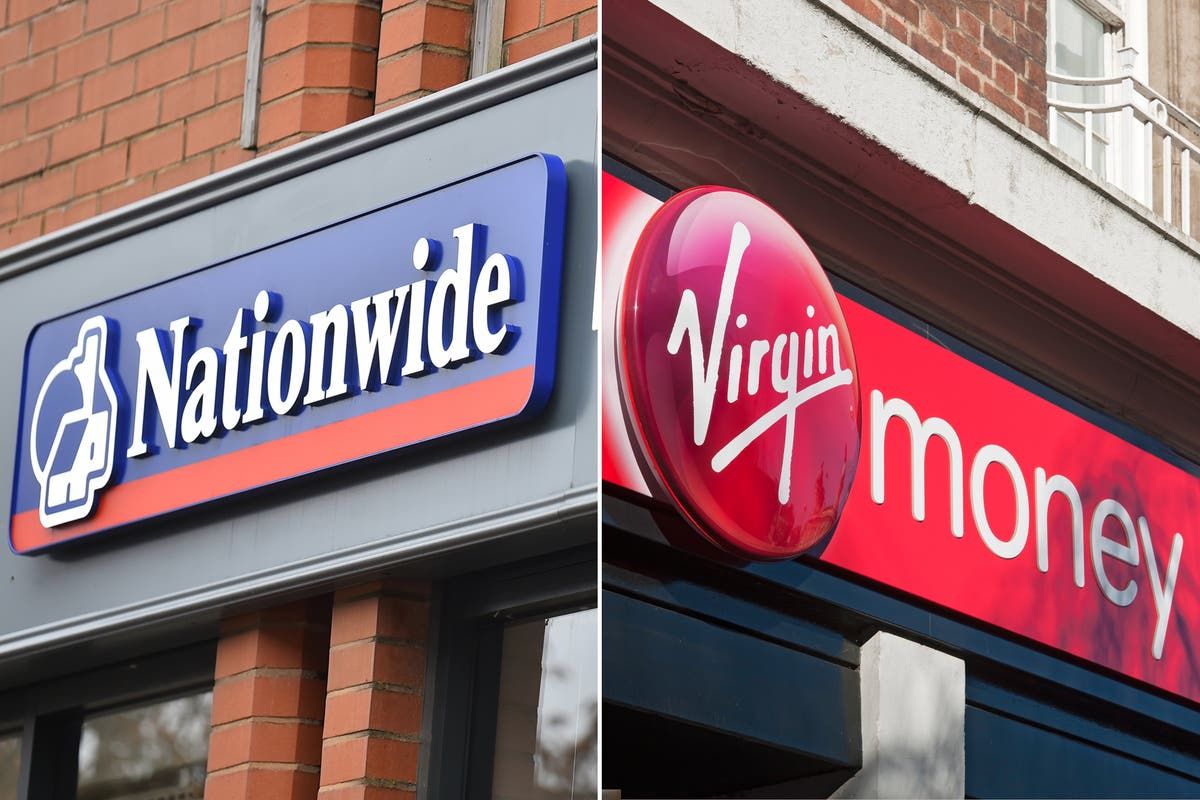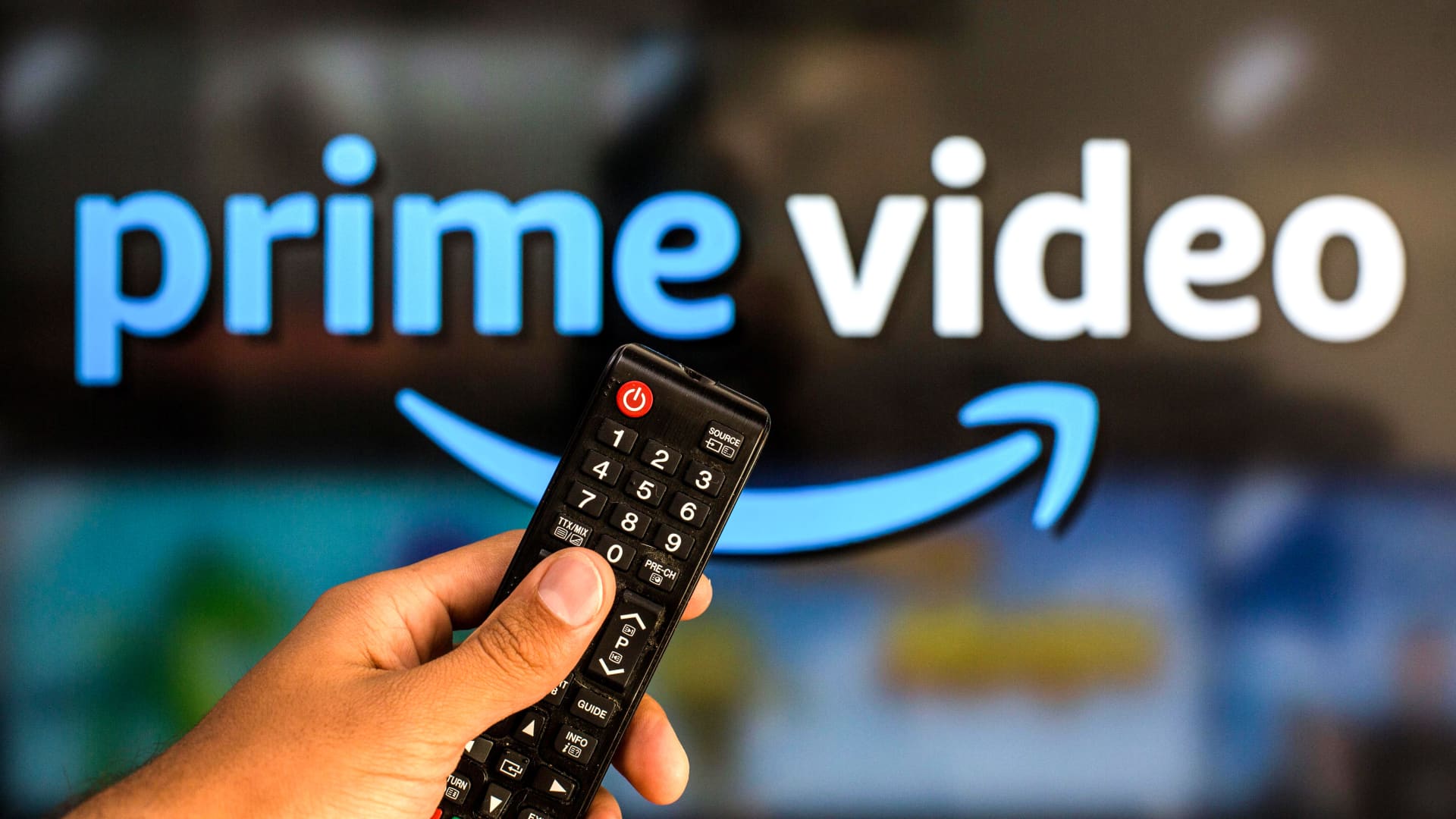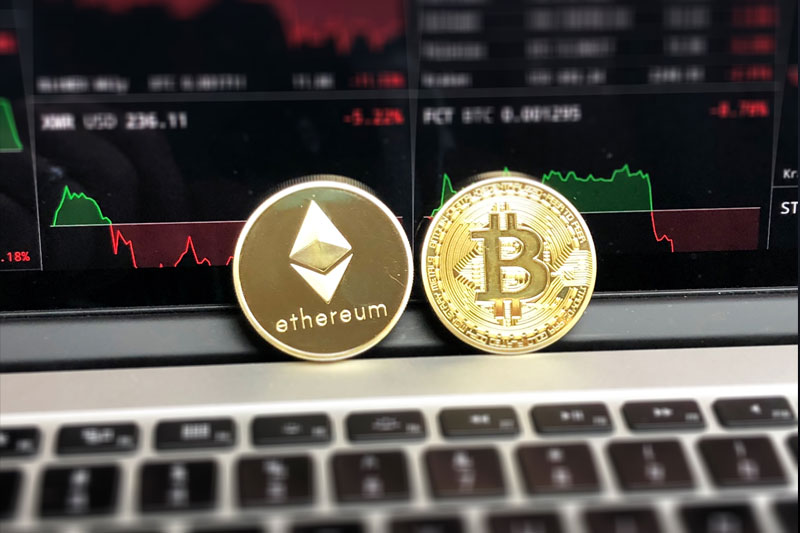Nationwide Building Society has launched a proposed £2.9bn takeover of smaller rival Virgin Money, in a move that will create a UK lending giant.
The move took the city by surprise and will catapult Nationwide into second place in the mortgage and savings market.
The planned acquisition will bring together Britain's fifth and sixth largest retail lenders, creating a combined group with around 24.5 million customers, more than 25,000 employees and almost 700 branches.
It will give Nationwide more leverage to challenge its big four banking rivals – Lloyds, NatWest, HSBC and Santander.
Together, the pair will have total assets of more than £366 billion and loans and advances of around £283.5 billion, making the combined group the second largest provider of mortgages and savings in the UK. .
– What will happen to the Virgin Money brand?
The deal will see the Virgin Money brand disappear from the UK's high streets.
Nationwide said it would initially retain the Virgin Money brand, but revealed it plans to rename the business Nationwide within six years once the proposed acquisition is completed.
This will see a reduction in the number of banking brands available to customers, while also leading to another company leaving the London Stock Exchange, as it would mean FTSE 250 company Virgin Money going private.
– What are the reasons for the acquisition?
Nationwide said the deal would allow it to “accelerate its strategy and broaden and deepen its products and services faster than could be achieved organically”, while boosting its credit card arm and business banking offering.
Virgin Money said being part of Nationwide would “broaden our customer offering and complete our journey into the banking sector as a national competitor”.
Susannah Streeter, head of money and markets at Hargreaves Lansdown, said Nationwide “wants to strengthen and diversify funding streams, tap into trading deposits and provide a big boost to the development of its services”.
“The mutual acquisition of a listed bank is an unusual move, but Nationwide clearly does not want to be stuck in the past and wants the knowledge and access to capture future customers who demand more advanced financial services,” he added. .
– Because right now?
Prior to the sharp rises arising from the proposed deal, Virgin Money shares have been struggling in recent months, trading well below levels seen in 2021 and early 2022.
Interactive Investor's Victoria Scholar said this gave Nationwide “an opportunity to pick up an undervalued asset.”
“Virgin Money has also struggled from a financial perspective with a drop in full-year earnings reported last November, resulting in a series of downgrades by the analyst community,” he added.
Last month, Virgin Money reported a drop in home lending amid a slowdown in the housing market, with home loans falling 2.2% to £57.1 billion in the final three months of 2023. .
– How will the agreement affect personnel?
Nationwide has around 18,000 employees and Virgin Money has around 7,300 employees.
Nationwide said it does not intend to make any “material changes” to the size of Virgin Money’s workforce “in the short term”.
But it's unclear what will happen next or what cost savings the pair will look to achieve after joining forces.
– What will it mean for branches?
Nationwide said it would maintain a branch in each location where the combined group is present, at least until early 2026 and “values Virgin Money's continued presence in Glasgow and Newcastle”.
Virgin Money has 91 branches, which have shrunk significantly in recent years after a series of closures due to the shift to online banking.
Nationwide is Britain's largest building society with 605 branches and claims to have the largest branch network in the UK.
– What will it mean for Nationwide's status as a mutual?
It has stressed that it will remain a mutual construction partnership if the deal goes ahead and is given the green light by Virgin Money shareholders and Nationwide members.
– Does this start the start of more deals between UK banks?
Experts said the acquisition could pave the way for more deals among smaller players.
Gary Greenwood of Shore Capital said: “This underlines that there is value in the sector and that smaller banks with low valuation multiples are vulnerable to such approaches.”








